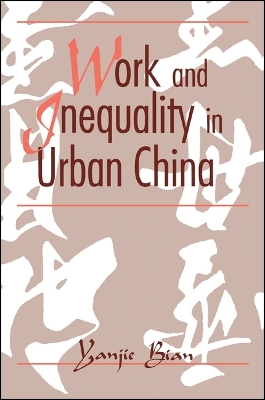SUNY series in the Sociology of Work and Organizations
1 total work
This book offers a systematic analysis of the impact of work organization on the social stratification of individuals in urban China. It explains why economic and labor market segmentation is possible and necessary in state socialism at a certain stage of its development, as in market capitalism, and how important one's work unit or danwei is to the life of socialist workers in Chinese cities.
Based on survey data, personal interviews, and official statistics, the author shows that structural allocation, status inheritance, educational achievement, political virtue, and interpersonal connections (guanxi) interplay in determining an individual's opportunities for entering and moving into a desirable place to work, for obtaining Communist party membership and an elite class status, and for receiving material compensation such as wages, bonuses, fringe benefits, housing, and home locations.
Based on survey data, personal interviews, and official statistics, the author shows that structural allocation, status inheritance, educational achievement, political virtue, and interpersonal connections (guanxi) interplay in determining an individual's opportunities for entering and moving into a desirable place to work, for obtaining Communist party membership and an elite class status, and for receiving material compensation such as wages, bonuses, fringe benefits, housing, and home locations.
